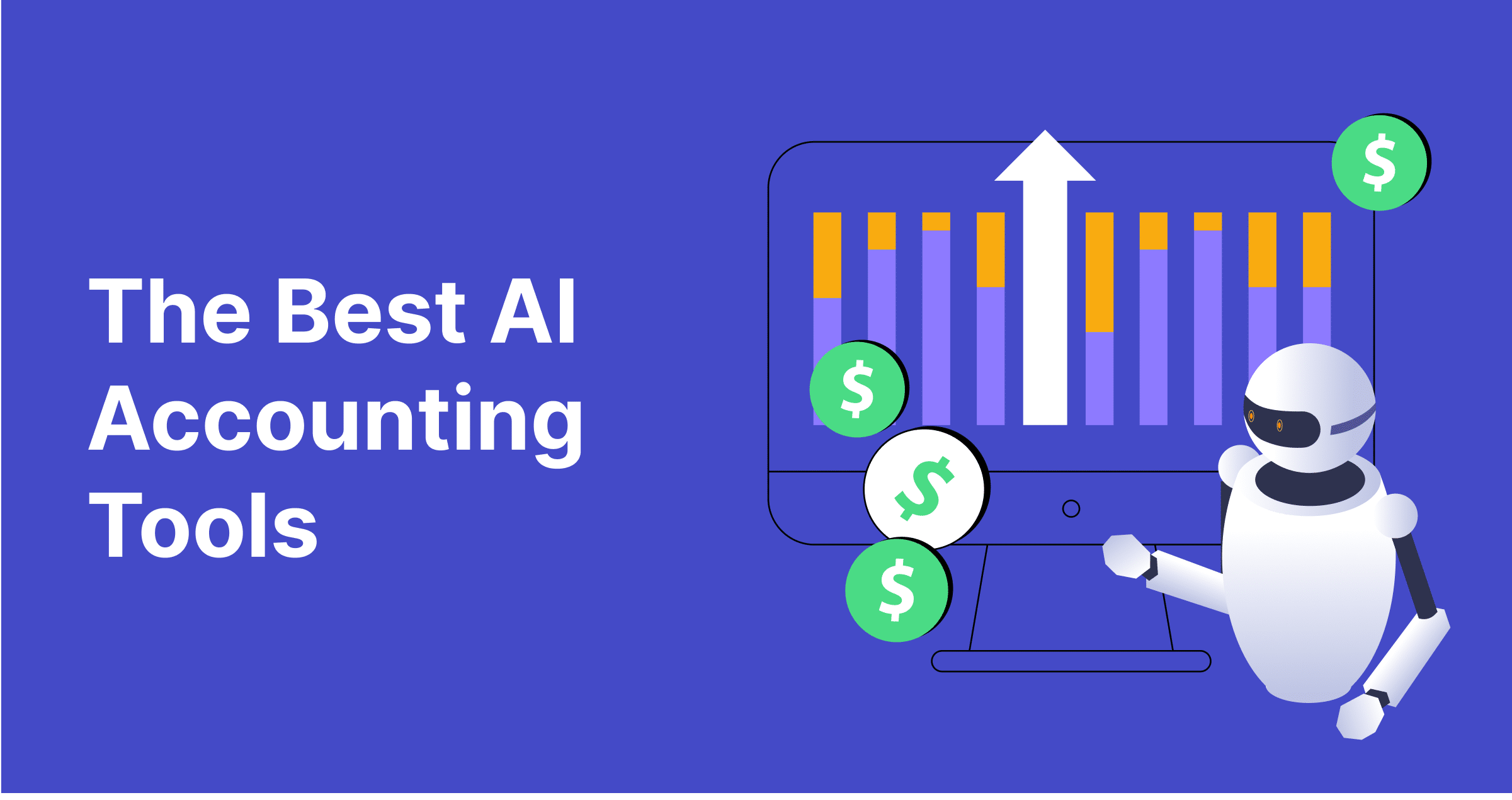
With more and more AI products being introduced daily, the options are becoming increasingly challenging to choose from.
AI accounting tools are no exception.
These innovative solutions are revolutionizing the way accounting professionals handle financial operations by automating repetitive tasks and offering unprecedented insights into financial data.
In a previous post we covered the 8 best overall finance tools that analyzes categories such as AP, budgeting and reporting, bookkeeping, and compliance.
But how do you choose the best AI accounting tools for your finance team or accounting firm?
You’re about to find out! Beyond discussing six of the most powerful AI tools currently available, we’ll also delve into what you need to know about AI accounting technology and how to best use it for your business.
From evaluating the features and capabilities of each tool to considering budget and implementation processes, we’ll give you a comprehensive overview of what to look for in an AI accounting tool.
Ready? Let’s go.
Understanding AI Accounting Technology
It makes sense to begin by understanding AI accounting technology and how it works.
By now you’ve probably heard of AI.
In the context of accounting, AI technology involves the use of machine learning algorithms and natural language processing to analyze financial data and automate various tasks. These tasks, which once required significant manual effort and were prone to human error, can now be completed accurately and efficiently by AI tools.
Benefits of AI Accounting Tools
While artificial intelligence accounting tools’ specific features and capabilities may vary, implementing this technology in your financial processes can provide several expected benefits.
- Time-Saving: AI accounting tools can save you valuable time by automating numerous tasks.
- Accuracy: These tools use advanced algorithms, significantly reducing human error risk.
- Scalability: AI tools can easily handle large volumes of data, making them a scalable solution for your accounting needs.
- Real-Time Insights: AI accounting technology can analyze and process data at high speeds for real-time insights into your financial health.
Common Applications of AI in Accounting
Along with the general benefits mentioned above, AI technology can greatly benefit specific tasks and processes within accounting.
These are some of the most common applications:
Data Entry
AI tools can accurately and efficiently input data from invoices, receipts, and other documents into accounting software using optical character recognition (OCR) technology.
Reconciliation
AI tools can automate the reconciliation process between bank statements and internal records by matching and comparing large data sets.
Fraud Detection
With machine learning algorithms, AI tools can detect patterns and anomalies in data that may signal fraudulent financial activity.
Predictive Analytics
AI technology can analyze historical data and predict future financial trends. This helps businesses anticipate potential challenges and opportunities and aids in decision-making about their economic strategy.
Tax Preparation
Some AI tools can also automate tax preparation by analyzing financial data and flagging potential deductions or credits.
Evaluating Features and Capabilities of the Best AI Accounting Tools
We know that there are more options than ever for AI accounting tools, which poses challenges for businesses trying to choose the best one for their needs.
Fortunately, we can also tell you the stand-out features and capabilities of the best AI accounting tools on the market, making your decision-making process a little easier.
Some primary factors to consider when evaluating AI accounting tools are:
- Accuracy – The tool should be highly accurate in data entry, reconciliation, and fraud detection.
- Integration – It should seamlessly integrate with your current financial systems and software.
- Customization – The tool should be adaptable to your business’s specific needs.
- Security – Financial data is inherently sensitive and confidential—the tool must have top-notch security measures.
- Scalability – Choose an AI accounting tool that can grow with your business.
- User-friendliness – The best AI accounting tools have intuitive interfaces and are easy for non-accounting professionals.
Take time to evaluate these features and capabilities closely.
Another tip is to take advantage of free demos and trials to test the tool’s performance and user experience in comparison to others that you’re interested in.
6 of the Best AI Accounting Tools
Below, we have compiled a list of six top AI accounting tools on the market.
We’ll break each software down by why it stands out, who it’s best for, and any potential drawbacks to consider.
1) Botkeeper

Botkeeper is an AI-powered bookkeeping and accounting solution that uses machine learning algorithms for data entry automation, reconciliations, and financial reporting tasks. First introduced over eight years ago, Botkeeper is now used by hundreds of accounting firms.
Why it stands out:
- Real-time tracking of finances for up-to-date insights
- Automated data entry and categorization saves time and minimizes human error
- QuickBooks integration
- Personalized dashboards provide visualizations of financial data for easy understanding
- Built specifically for accounting firms
- 24/7 support
Who it’s best for:
- Accounting firms in need of a complete and cost friendly solution for bookkeeping and accounting tasks.
Botkeeper Pricing:
- From $69 per month
Potential drawbacks:
- Some businesses may prefer a more hands-on approach to their finances and may not feel comfortable relying solely on AI technology for bookkeeping.
2) Zeni
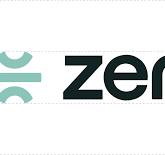
Zeni is another AI-powered bookkeeping and accounting solution “created by and for founders.” It offers a combination of software automation and human expertise, providing clients with real-time financial insights and forecasts.
Why it stands out:
- Sophisticated AI technology coupled with access to a team of professional accountants
- 24/7 access to financial data and personalized insights via the Zeni app
- Tax planning and filing services are available
Who it’s best for:
- Small to medium-sized businesses looking for a comprehensive and personalized bookkeeping solution.
Zeni Pricing:
- Starting from $549 per month for Starter Plan.
- $799 per month for Advanced.
Potential drawbacks:
- The focus on founder-led companies may not be the best fit for businesses with a large team or multiple stakeholders.
3) Vic.ai
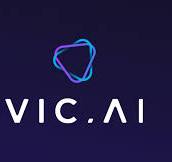
Another excellent example of AI-powered accounting software is Vic.ai. This platform utilizes machine learning to automate routine accounting tasks. Vic.ai is said to “unlock 5x ROI and 80% higher AP efficiency.”
Why it stands out:
- Matches purchase orders with corresponding invoices using AI algorithms
- Streamlines approval processes for invoices through AI-driven workflows
- Facilitates payment processing within the platform
- Moves from semi-automated to fully autonomous invoice processing
Who it’s best for:
- Companies that want to optimize their accounts payable processes, achieve a high ROI, and increase efficiency in AP operations.
Vic.ai Pricing:
- Custom quotes only
Potential drawbacks:
- Vic.ai may not be the best fit for companies that require a more comprehensive bookkeeping solution as it focuses primarily on invoice processing and AP functions. Some users may find the platform’s AI-only approach lacking human expertise and personalization.
4) Dext
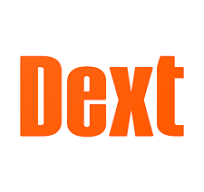
Offering three primary products: “Dext Prepare for automated data extraction, Dext Precision for accountancy practice data insights, and Dext Commerce to manage e-commerce sales data,” Dext is a multifaceted accounting software with AI capabilities.
Why it stands out:
- Provides automated solutions for accountants, bookkeepers, and businesses, simplifying tasks and improving efficiency.
- Boasts over 99% accuracy in its products
- Connects with leading accounting software
- Offers both desktop and Dext mobile app versions for flexible access
Who it’s best for:
- Accountants, bookkeepers, and businesses seeking to streamline and automate accounting processes and save time on manual data entry and administrative tasks.
Dext Pricing:
- Depends on the product – Prepare, Precision, or Commerce
- Starts at $41 per month up to $330
Potential drawbacks:
- An initial setup and learning curve may be required to maximize the platform’s benefits. Further, while automation can save time, users may still need to verify and reconcile data for accuracy.
5) Gridlex

Gridlex is a unique item on this list for several reasons. Most notably, it is an open-source tool designed for developers rather than end-users. Gridlex offers a comprehensive suite of integrated applications designed to address accounting firms and practices’ unique challenges.
Why it stands out:
- Offers an open-source, customizable solution for developers to create their accounting applications
- Supplies a comprehensive range of accounting features, including invoicing, billing, time-tracking, project management, and more
- It can be integrated with other software or used as a standalone solution
Who it’s best for:
- Developers looking to create customized accounting applications for their clients or businesses seeking a tailored accounting solution.
Gridlex Pricing:
- Starts at $10 per month for the basic plan
Potential drawbacks:
- Users may require advanced technical skills to fully utilize the software’s features and capabilities. Additionally, they may need to invest time and resources in developing and maintaining the application.
6) Blue Dot
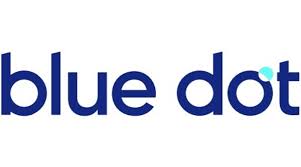
Blue Dot is specifically designed for ensuring global tax compliance. One of its coolest and most unique features is using AI to maximize VAT refunds through their digitalised VAT Compliance Platform. In addition your accounting team can easily track international taxable employee benefits.
This means that paying for Blue Dot’s subscription won’t only automate many of your tasks but it also has the possibility to save the company money and even receive VAT reclamation.
Why it stands out:
- Offers “VAT Box” feature to identify and calculate any eligible or qualified VAT spending.
- Provides a complete view into employee-driven transactions without having to track it manually.
- Users can create specialized corporate income tax reports that ensure global compliance, almost completely automated.
Who it’s best for:
Midsize to large companies that have international branches, global employees, or confusing tax regulation.
Blue Dot Pricing:
- Don’t provide pricing on their website. Custom quotes only.
Potential drawbacks:
- No public pricing on their website while most on the list have multiple monthly payment tiers
- Not a complete accounting AI tool as they focus on tax
Using AI Tools to Streamline Financial Operations
Implementing AI into your financial operations can transform your business by automating routine tasks, providing deeper insights into your finances, and assisting in strategic decision-making.
Now that you’ve got an overview of some top AI tools for accounting and bookkeeping, it’s time to put them to the test. We encourage you to check out how our AI-powered FP&A platform can streamline your company’s financial operations and boost its efficiency as a whole.